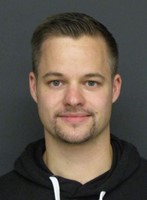Loading view.
Calendar of Events
S Sun
M Mon
T Tue
W Wed
T Thu
F Fri
S Sat
Ankur Mehta
Assistant Professor & Samueli Fellow
Electrical & Computer Engineering, UCLA
Robotics Institute,
Carnegie Mellon University
Carnegie Mellon University
Nidhi Kalra
Senior Information Scientist
RAND Corporation
Kayvon Fatahalian
Associate Professor of Computer Science
Stanford University
Fabio Pizzati
PhD student
Inria
Chelsea Finn
Assistant Professor
Computer Science & Electrical Engineering, Stanford University









